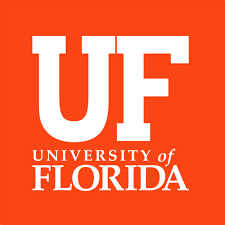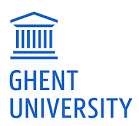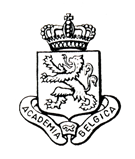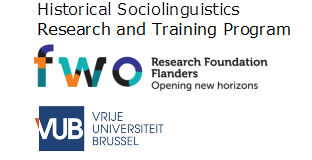November 14 – November 15
Belgian Academy in Rome

Follow the conference on Youtube
Multilingualism in the ancient world has been of great interest to linguists and literary scholars alike. Linguists investigate borrowings and structural convergences between two or more languages and explore broader sociolinguistic questions such as regional diversification and linguistic ideologies (e.g. Adams et al. 2002; Bentein 2016; Clackson et al. 2020; Hogeterp 2018; Kaimio 1979). Literary scholars look into the socio-cultural context within which literary works were produced and received and the linguistic background that Greek-speaking and writing authors had – including the linguistic norms and standards that they tried to uphold in the Greek language itself – framing it in the broader question of (the struggle for) cultural identity (Adams 2020; Andrade 2013; Bozia 2018; Goldhill 2011, Lee at al. 2014). For both research strands, Archaic Greek dialectal variety and its literary manifestations, as well as multidialectal and multilingual contacts in Classical Greek, have been of interest. Similarly, the Post-classical period (including the Hellenistic, Roman, and Late Antique periods) has been of particular relevance as a time of particularly intense language contact.
Scholars working in these two research strands tend to focus on different types of sources – literary and non-literary sources such as papyri and inscriptions – and adopt different methodologies, focusing on different types of research questions. The main aim of this conference is to bring together researchers, methodologies, and sources with the objective of developing a more integrated approach toward multilingual practices in various ways:
- by developing a diachronic approach to the study of Greek and its contact languages, from the Archaic to the Byzantine period,
- by including types of sources traditionally neglected, such as translations and bilingual metalinguistic sources like grammars & dictionaries,
- by situating multilingual literature in its socio-cultural context, looking at people with multilingual competencies, the intellectual communities in which they operated, and the factors driving particular linguistic and literary choices,
- by integrating new theoretical approaches, such as cognitive and socio-pragmatic ones, to create a framework for the study of multilingualism in the ancient Greek world.
The general goal of the conference is to understand better what the linguistic repertoire of multilingual speakers and writers looked like, how and why writers brought together features (ranging from specific linguistic patterns to larger and more abstract cultural forms such as genres) from different cultural traditions, and what the intended effect was, or, vice versa, why they consciously resisted them. Importantly, under ‘multilingual competencies,’ we also understand the existence of different linguistic registers and dialects inside a single language. Finally, the conference focuses on literary sources, but it is also interested in overlaps with genres that have traditionally been defined as ‘non-literary,’ a distinction that recent research has problematized (e.g., Fournet 2013).
Keynote Speakers:
James Clackson, University of Cambridge
Mark Janse, Ghent University
Arietta Papaconstantinou, Aix-Marseille Université
Organizing Committee:
Eleni Bozia, University of Florida
Klaas Bentein, Ghent University
Chiara Monaco, Ghent University
Follow the conference on Youtube
Event Program
Download or Print PDF Program
Book of Abstracts
Download or Print PDF Book of Abstracts
The conference is supported by the UF Office of Advancement, the UF Center for Greek Studies, the UF Department of Classics, Ghent University, and the Historical Sociolinguistics Research and Training Program in Flanders that is funded by the Research Foundation Flanders and Vrije Universiteit Brussel. The conference is held in collaboration with the Belgian Academy in Rome.




